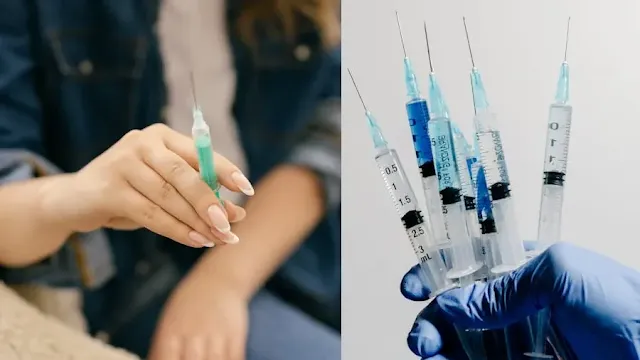Travelling with Diabetes: Can You Carry Insulin Syringes?
Last year, my cousin, who manages her diabetes with insulin injections, was anxious about her first international flight to London. Armed with a doctor’s letter and her supplies in original packaging, she breezed through security after declaring her insulin syringes. Her experience showed us that with proper preparation, traveling with diabetes is manageable. Here’s everything you need to know about flying with insulin syringes and diabetic supplies.
Traveling with Diabetes: Can You Carry Insulin Syringes?
Yes, insulin syringes are allowed on airplanes, as are other diabetes-related supplies like insulin, blood glucose meters, and lancets. According to the Transportation Security Administration (TSA), these items are permitted in cabin baggage once properly screened by X-ray or hand inspection. Proper preparation, including declaring items and carrying documentation, ensures a smooth travel experience for those managing diabetes.
Table of Contents
- Can I Carry Insulin Syringes on a Plane?
- How to Carry Insulin Injections in Flight
- What to Do with Insulin Needles When Traveling
- Can We Carry Injections in Flight?
- How to Fly with Injectable Medication
- Is Needle Allowed in Cabin Baggage?
- Do You Need a Letter from Your Doctor?
- How to Store Insulin Injections While Traveling
Travelers with diabetes must understand airline and TSA regulations to carry insulin and syringes without issues. Declaring these items at security checkpoints and having proper documentation can prevent delays and ensure your health needs are met during travel.
Can I Carry Insulin Syringes on a Plane?
Yes, you can carry insulin syringes on a plane. The TSA allows diabetes-related supplies, including insulin syringes, preloaded syringes, insulin pens, and lancets, in cabin baggage after proper screening. Declare these items at the security checkpoint and separate them from other belongings for X-ray or hand inspection.
How to Carry Insulin Injections in Flight
To ensure a smooth security process, follow these steps for carrying insulin injections:
- Original Packaging: Keep insulin in its original vials or packaging to help security identify it quickly.
- Separate Packing: Place insulin and syringes in a separate bag from toiletries for easy declaration during screening.
- Documentation: Carry a prescription or doctor’s letter explaining your need for insulin and syringes to avoid misunderstandings.
What to Do with Insulin Needles When Traveling
When traveling with insulin needles, use a sharps container to safely store used syringes. Carry an empty, TSA-approved sharps container in your cabin baggage for disposal. Declare used and unused needles at security checkpoints, and check local regulations at your destination for proper needle disposal.
Can We Carry Injections in Flight?
Yes, injections, including insulin syringes and other injectable medications, are allowed in cabin baggage. They must be accompanied by a prescription or doctor’s letter and declared at security for screening. Ensure all injections are in their original packaging to facilitate the process.
How to Fly with Injectable Medication
Flying with injectable medication requires careful planning:
- Declare at Security: Inform TSA or security personnel about your injectable medication before screening.
- Carry Documentation: Have a doctor’s letter or prescription to verify your medical need.
- Pack Properly: Store injectable medications in a cool, insulated bag and keep them in carry-on luggage to avoid temperature extremes in checked baggage.
Is Needle Allowed in Cabin Baggage?
Yes, needles, including insulin syringes and lancets, are allowed in cabin baggage when accompanied by insulin or other prescribed medications. Declare them at security, and carry a prescription or doctor’s letter to streamline the process. Unused syringes are permitted in unlimited quantities when paired with insulin.
Do You Need a Letter from Your Doctor?
While not always mandatory, a doctor’s letter is highly recommended. It should detail your diabetes diagnosis and the necessity of carrying insulin, syringes, and other supplies. This documentation can expedite security checks and clarify your medical needs if questioned.
How to Store Insulin Injections While Traveling
Proper insulin storage is critical to maintain its effectiveness:
- Insulated Bags: Use insulated pouches or cooling packs to keep insulin at a stable temperature, especially in extreme climates.
- Avoid Freezing: Prevent insulin from freezing, as this can render it ineffective. Avoid checked luggage for long flights where cargo holds may reach low temperatures.
- Temperature Monitoring: Use a thermometer or temperature-monitoring device to ensure insulin stays within the recommended range (typically 36°F to 46°F for unopened insulin).
By following these guidelines, travelers with diabetes can navigate airport security with confidence. For more information, check the TSA guidelines on unused syringes, Air India’s restricted baggage rules, or the Fact Sheet on Air Travel and Diabetes. Safe travels!





No comments:
Post a Comment